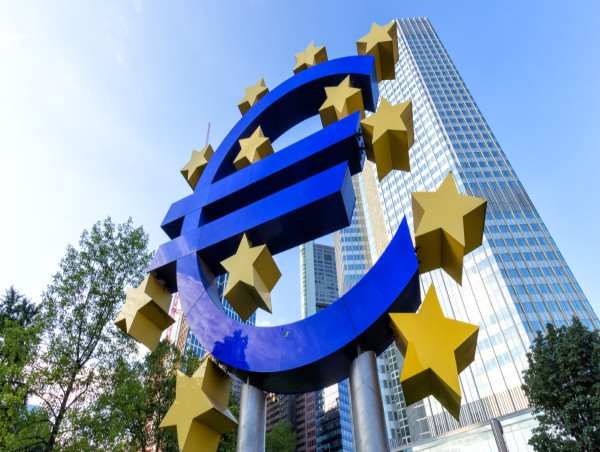Data for both the German and French HCOB Purchasing Manager Index (PMI) and their respective constituents were collected from October 12th,2023 to October 20th, 2023.
A reading of above 50 indicates an expansion, while below 50 means there was a contraction.
Germany
Germany, the largest economy in Europe, continues to struggle amid crushing energy costs and the threat of ever-higher inflation.
The Flash PMI for October 2023 showed that the overall downturn has remained broad-based adding to the woes of policymakers.
The headline composite PMI Flash measure for the month was recorded at 45.8, a 2-month low, receding from 46.4 in the previous report.
This also marked the fifth consecutive month of contraction.
In addition, composite PMI fell well below consensus estimates of 46.7 as reported by TradingEconomics.com.
The decline in the composite measure was largely due to being dragged down by the sharp slowdown in manufacturing.
Aggregate inflows of new business orders decreased by the sharpest since May 2020, while backlogs were reduced amid rising job cuts for a second consecutive month.
Manufacturing PMI Flash data increased to a five-month high of 40.7, rising from 39.6, and was above the consensus estimate of 40.0.
Yet, manufacturing remained in deeply negative territory owing to the deep cutback in new orders which drove a fourth consecutive month of layoffs in the sector.
Germany’s chronically elevated energy costs are a major contributor to the falling competitiveness of the industry.
The Services PMI for the country declined to 48.0 as against 50.3 in the previous month and was also well below consensus expectations of a neutral 50.
In a worrying sign for the broader economy, October 2023 marked the second contraction in services over three months which could signal further weakness.
Output for the services sector fell amid weakening demand, lower consumer enthusiasm, and a tighter financial environment.
Among services enterprises, output charge inflation reached to its lowest levels since May 2021, although higher labour costs remain a serious concern.
Dr. Cyrus de la Rubia, Chief Economist at Hamburg Commercial Bank, argued,
Germany is kicking off the final quarter on a sour note…. Therefore, there is much to suggest that a recession in Germany is well underway… (however) there is no reason to pull the plug on inflation concerns.
On an optimistic note, service providers’ sentiments about the following year, improved to a four-month high.
France
The French economy continues to suffer heading into Q4 2023, with both manufacturing and services industries shrinking since the previous month.
Business activity as per the Flash Services PMI Business Activity Index surpassed September’s 44.4 and reached a 3-month high of 46.1, but remained below the 50-level.
Although above consensus expectations, this only served to highlight the plight of private companies which are struggling to maintain output in light of subdued demand and high worker costs.
This was reflected in the first decline in private-sector employment since November 2020.
Being firmly in contractionary territory, demand continued to be weak owing to high business uncertainty, rising energy and labour costs, and stubborn inflation.
The Headline France Composite PMI Flash remained below 50.0 for a fifth consecutive month even though it saw an uptick to 45.3 from a 34-month low of 44.1 in September 2023.
France’s Manufacturing PMI Flash plummeted from 44.2 in September 2023 to 42.6 in the latest report, significantly underperforming consensus estimates of 44.4 as reported by TradingEconomics.com.
Significantly, this marked a 41-month low for manufacturing while expectations of respondents across manufacturing firms over the next twelve months slipped to their most pessimistic in the past three-and-a-half years.
Weak order pipelines, a sharp reduction in overseas bookings, failing exports, and accelerating operating costs contributed to the weakness in the space.
To stay afloat, private sector companies serviced their backlogs where possible, but this was insufficient to stem the loss of jobs.
Despite rising selling charges, downstream prices were weaker due to low consumer appetite and market competition and is likely to pressurize margins going ahead.
The Services PMI Flash reached a three-month high but remained deeply depressed at 46.1, although it improved from 44.4 in the previous month, and was recorded at above consensus estimates of 44.6.
New orders shrank for a sixth successive month.
Amid elevated fuel prices and wage pressures, input prices climbed for a second consecutive month, while output prices slowed.
Yet, higher input costs could come to weigh on affordability.
Outlook
In both countries, economic activity remained poor at the start of Q4, dragged lower by weakness in manufacturing amid elevated input costs, low consumer demand and rising wage costs.
Estimates for Germany by the European Commission suggest that a recession is imminent, with a projected (-)0.4% decline in full-year GDP forecasted for 2023, as against a growth of 1.8% in 2022.
Policymakers are optimistic that the economy will recover and register a growth of 1.1% in 2024.
de Rubia noted,
…we take these developments as signs that there is some bottoming out happening in this (manufacturing) sector. Manufacturing might return to growth territory in the early part of next year.
It should be noted that Germany was recently on the cusp of a trade war with its largest trading partner, China, and if tensions were to escalate, demand for German-made goods, particularly automobiles and EVs may be deeply dented in the coming months.
Full-year headline inflation is forecast at an incredibly high 6.4%, although this would be a sizeable moderation from 8.7% in 2022.
These projections suggest that even as the German economy may return to growth next year, the European Central Bank (ECB) will likely be forced to maintain elevated rates to combat inflation.
In the case of France, manufacturing has deteriorated sharply on the back of weak construction and a subdued real estate sector, while year-ahead expectations remain disappointing.
Norman Liebke, Economist at Hamburg Commercial Bank added,
The services sector is hitting roadblocks… there is no relief in sight (for manufacturing)…
The European Commission expects GDP growth for France to stay in positive territory of 1.0% for 2023, edging slightly higher to 1.2% in 2024.
However, economic activity is far from strong with the Bank of France noting barely positive growth of 0.1% for Q3 2023, and may indicate continued weakness ahead.
Inflation has remained largely persistent over the past two years, coming in at 5.9% in 2022 and dipping only slightly to 5.6% in 2023.
However, this is forecast to slow significantly in 2024 to 2.7%, on the back of falling demand amid the tighter monetary environment of the ECB.
To gauge the health of the European Union as a whole, investors will continue to track upward price pressures in Germany and France, as any increase in underlying inflation would push monetary policymakers into a challenging position.
This is especially true since as Liebke argued,
(The ECB) more or less signalled at its last meeting that no further rate hikes will be carried out.
Yet, indications that the Federal Reserve may not be finished with its tightening cycling may mean that the ECB is forced to recalibrate its strategy amid an especially weak manufacturing sector across its two largest economies.
The post Broad-based contraction in German and French PMIs fuel recessionary fears appeared first on Invezz





